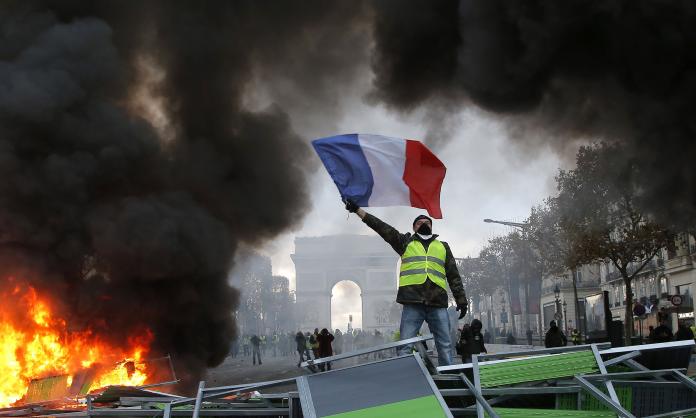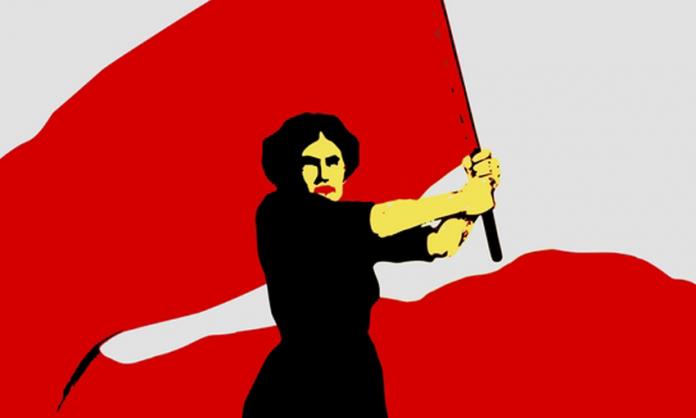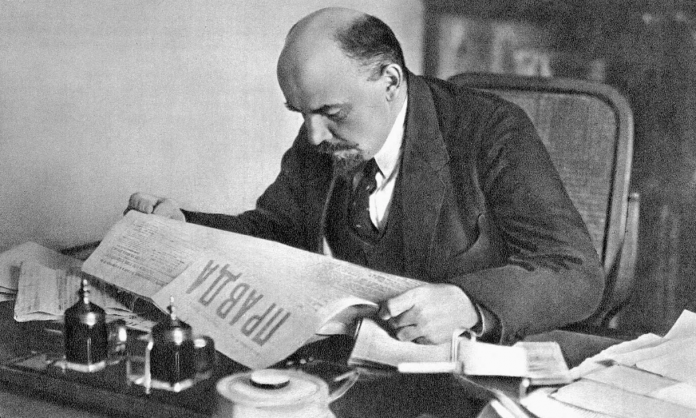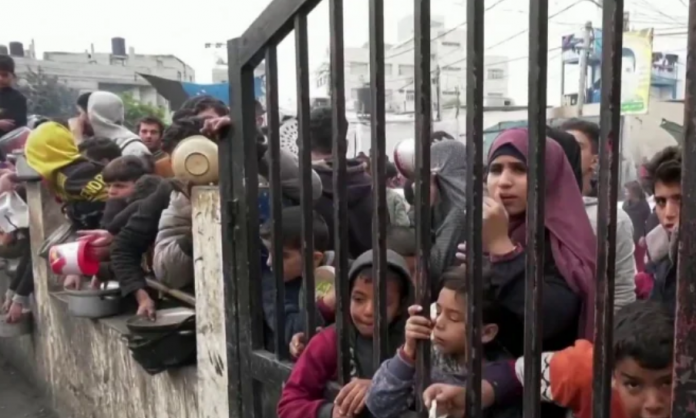When a furious elderly man berated former Prime Minister Scott Morrison on the federal election campaign trail over the government’s treatment of disability pensioners, he not only burst the bubble of forced civility and stage-managed good cheer that characterise most politicians’ interactions with the public; he also exposed something interesting about the limits of capitalist ideology.
“This is what you said when you got elected last time: ‘We’re going to help those people who worked all their lives, paid their taxes, and those who have a go, get a go’. Well, I’ve had a go, mate, I’ve worked all my life and paid my taxes”, he said. For this man, the brutal reality of scrounging to survive on the disability pension had usurped his expectation of fair treatment in compensation for having sacrificed his body and mind to the economy.
While Morrison’s PR crew rushed to depict the man as unhinged, and the mainstream media hyped the political discontent the interaction revealed, few commentators remarked on the most curious aspect of the exchange: the fact that this man was driven to chastise Morrison publicly, not because the complainant had broken with capitalist ideology, but because he actually believed it.
The failure of the system to live up to its own promises and expectations—in this case, for fairness—led to an outburst that encapsulates a central contradiction of capitalist ideology: in the right circumstances, the ideas used to justify the system and instil a sense of powerlessness in ordinary people can, paradoxically, galvanise them to oppose it.
Another example of this came during the bushfire crisis of 2019-20. As fires ripped through New South Wales, devastating homes and wildlife and blanketing cities in toxic smoke, Morrison infamously jetted off to Hawaii on holiday. His absence ignited the accumulated tinder of years of both major parties’ wilful negligence on climate change, the effects of which had become too immediate to be denied.
In the huge demonstrations that occurred throughout the country in response to the fires, the mood of outrage found its target in the prime minister’s flagrant abdication of his responsibilities. ABC News reported on protesters who carried signs reading “A quiet angry Australian”, an embittered reference to the Liberals’ favoured trope of the hard-working, self-sufficient, apolitical citizen who passively goes along with the government of the day. Firefighters on the front lines were even more ropeable with his failed leadership.
This fury stemmed from the idea that capitalist governments and politicians can and should serve ordinary people and the planet, instead of serving the interests of business regardless of the environmental and human toll. It assumed that this is what they ordinarily do—an idea that is part of the ideological foundations of capitalism—and that the development of an alternative to capitalist governments that are constitutionally incapable of representing our interests is not immediately necessary. This relatively conservative assumption prompted people to engage in disruptive mass resistance.
This contradiction raises a question: how can struggles have any oppositional—let alone anti-capitalist—value when they are frequently informed by ruling-class ideology?
Many schools of thought and individuals on the broad left would say they can’t, which makes sense if you take the ideas prevailing in social and industrial struggles, at any single moment in time, as the primary yardstick by which to judge their worth. In practice, this often means condemning rebellions to failure from the outset, as the ideas of those entering into struggle never immediately and uniformly rupture with capitalism.
Take, for instance, the responses from revered leftists intellectuals like Stuart Hall to the 2011 riots in England, sparked by the murder of the Black man Mark Duggan by the police. In the face of this social explosion, Hall focused his analysis not on the political dynamics at play, but on the bitter irony of people expressing their anger through one of the most pro-capitalist activities imaginable: shopping.
As Hall would later tell the Guardian, these riots supposedly embodied the ubiquity of consumerist ideology and how it corrupts even expressions of dissent. “This is the point at which consumerism, which is the cutting edge of neoliberalism, has got to [the rioters] too”, he noted. “Consumerism puts everyone into a single channel. You’re not doing well, but you’re free to consume.”
In place of mainstream commentators slandering the rioters as deviant criminals intent on disturbing the order of capitalist society, we find leftist cultural theorists mourning the impossibility of rupturing with it, especially in the very moments when opposition actually emerges. Although the ideological emphases differ significantly, the effect here is similar: to naturalise the existing society and invalidate any social contestation emerging from it.
A similar note is hit by Slavoj Zizek, the intellectual rock star of the left, in his critique of the Yellow Vest movement in France.
For Zizek, Yellow Vest protesters are simultaneously too conservative and too radical. Too conservative insofar as their demands for cheaper petrol, lower taxes and more money for public services “express their interests rooted in the existing system” instead of recognising the need for an entire paradigm shift, and too radical insofar as they address these demands to the existing French political establishment headed by President Emmanuel Macron.
“In all the explosion of demands and expression of dissatisfaction”, he declares, “it is clear the protesters don’t really know what they want, they don’t have a vision of a society they want, just a mixture of demands that are impossible to meet within the system although they address them at the system”.
Despite its trappings of intellectual profundity, Zizek’s analysis here essentially boils down to a simple catch-22: truly revolutionary struggles must articulate demands that exceed the capitalist order, but only at the level of ideas, never by building the forces necessary to realise those demands. For that would mean, at least initially, trying to force concessions from the capitalist class and therefore revoking the struggle’s revolutionary character.
But the “mixture of demands”, or heterogeneity of ideas, that Zizek cites as the chief shortcoming of the Yellow Vest movement is not only unavoidable in mass struggles; it is in fact an important part of their development. This holds even when mass struggles, at least initially, adopt notions drawn from the textbook of capitalist ideology.
To understand why, the comments of Hungarian Marxist George Lukacs are insightful. Distilling, in one of his last interviews, the core insights he took from Lenin, Lukacs asserted: “The socialist revolution must be made with the people that capitalism has produced and who have been damaged in various ways by capitalism”.
These people produced by capitalism are the working class—the people whose exploitation is so necessary to maintain the bosses’ profits and power the imperialist manoeuvring of the state. These are the people who, for this very reason, bear the potential to grind the capitalist system to a halt and remake society anew, even while capitalism conditions them to feel powerless at the hands of bosses and governments.
When these people move into mass struggle, they don’t do so as a cohered collective of self-identified, clear-minded, anti-capitalist agitators, immediately rejecting a lifetime of capitalist social conditioning. They are only people with the potential to do this. To expect otherwise is utopian, and tends to lead to contempt for mass politics.
This is not to suggest that every aspect of capitalist ideology can or will become ammunition in the struggle against exploitation and oppression. Nor is it to imply that left-wing individuals and organisations should remain indifferent to the particular ideas that take hold as struggles unfold. It is simply to acknowledge the reality of class struggle and ideological turmoil, and their peculiar dynamics, in order to influence better the direction in which they go and the ultimate outcome.
Marxists ultimately want to resolve the ideological and organisational messiness of mass struggle in favour of revolutionary aims and consciousness. Marx himself expressed this in unequivocal and expressive terms, lamenting the fact that “the tradition of all the dead generations weighs like a nightmare on the brain of the living” precisely in moments of mass struggle.
Just as it is absurd to expect anti-capitalist ideological clarity at the outset of any given struggle, it is equally utopian to suggest that such clarity spontaneously and inevitably emerges as the struggle develops. The passivity of the former position, which renders revolution impossible, is simply the mirror image of the latter, which renders it inevitable.
The triumph of anti-capitalist politics in any given social or industrial struggle is not a foregone conclusion but a goal made possible by the dynamic process of struggle itself, wherein the course of events, the nature of the subjective forces influencing the two sides and their relative strength is decisive.
One of the most important factors in determining the outcome of any given struggle is the intervention of political organisations—both those that want to push struggles in an even more radical direction, and those that want a return to capitalist normality and are ready to accept the most minimal concessions from bosses and their political servants.
Just consider the mix of social institutions—not just the avowedly pro-capitalist forces such as big business and the Liberal Party, but perhaps more importantly, the Labor Party and trade union bureaucrats—that today tell us that workers need to accept declining living standards in order to restore capitalism’s profitability. These forces will not simply disappear when ordinary people start to mobilise collectively and demand more for ourselves. They will instead become more organised, often appealing to collective grievances in order to contain them and restore social stability.
This underscores the critical importance of a revolutionary organisation capable of intervening into mass struggles in order to articulate an ideological and strategic alternative to the class-collaborationist politics of reformists and liberals: organisation with the aim of emboldening workers and ordinary people to push past what is deemed reasonable by the mainstream capitalist institutions, and ultimately to fight for a new form of society based on direct, working-class democracy.
Mass struggle brings into stark relief how the contest of ideas in society is inseparable from the contest over who runs society and to what purpose. That’s why critiquing capitalist ideology and exposing its dominance cannot be merely a matter of intellectual gamesmanship, but is a part of the political project of building the forces capable of putting this critique into practice. “Ideas”, as Marx put it in The Holy Family, “can never lead beyond an old world order, but only beyond the ideas of the old world order. Ideas cannot carry out anything at all. In order to carry out ideas, men [and women] are needed who can exert practical force”.










